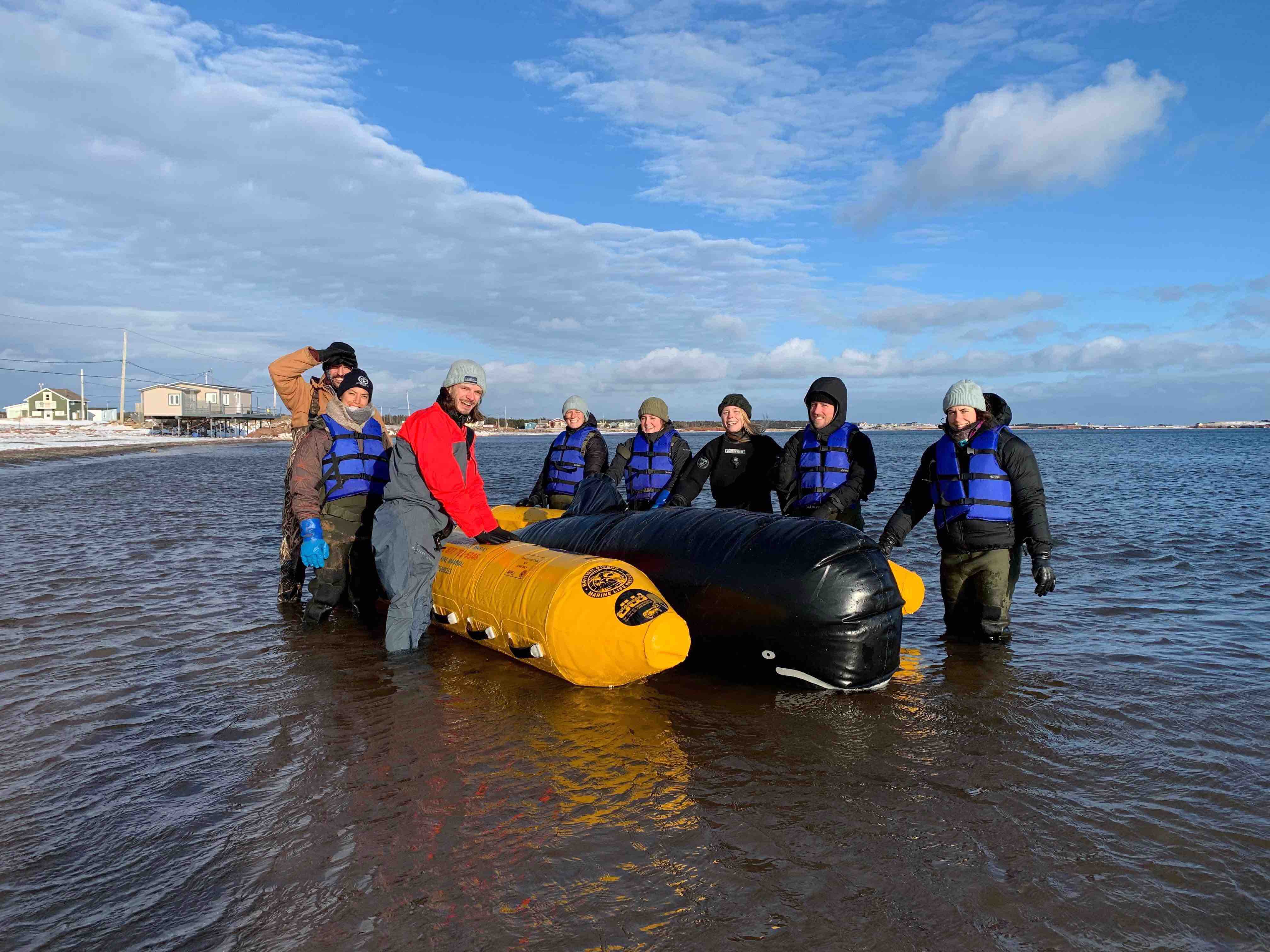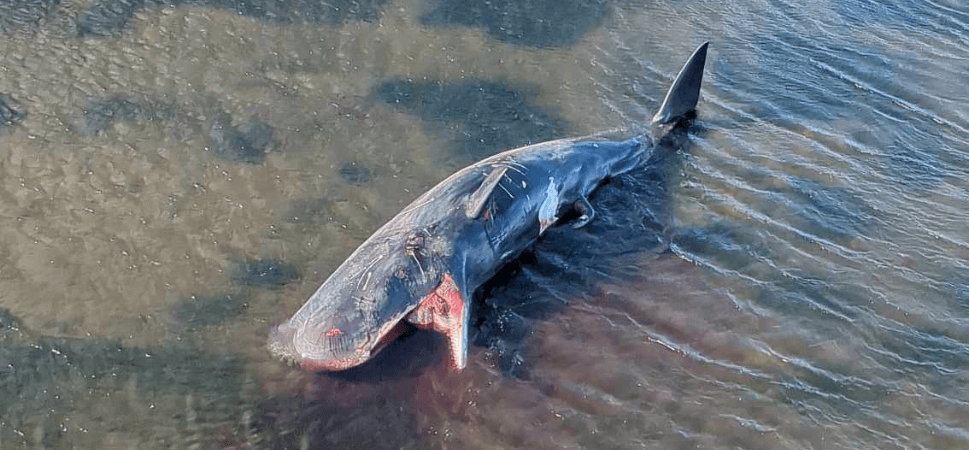Do you live near the St. Lawrence? Do you enjoy walking on its shores? Do you have a flexible schedule and a desire to contribute in your own way to a science project that has been continuing for over 10 years? Are you motivated to volunteer for the sake of knowledge building on marine mammal carcasses, to collaborate in response efforts involving marine mammals in difficulty, or to provide assistance in problem situations reported by local residents? The Quebec Marine Mammal Emergency Response Network needs you!
Since 2012, the Network has been providing citizens and maritime professionals with the opportunity play a role in dealing with dead or distressed marine mammals. An appeal is therefore being made, whether it be in Charlevoix, Côte-Nord, Gaspésie, the Magdalen Islands or even in the Fluvial Section of the St. Lawrence.

Thanks to the Community Interaction Program, co-administered by Environment Canada and the Government of Quebec, volunteers are trained (training provided remotely by teleconference) and equipped with a response kit. A little over 100 volunteers are available to perform various tasks in the field: provide photos and information to experts to assess the state of an animal, raise awareness on site, secure a site or offer assistance to specialized responders.
Volunteers Needed
Every winter, Marine Mammal Emergencies sets out in search of new volunteers to increase its efficiency and ensure more complete coverage of the region. For 2016, needs are particularly acute in the regions of the Magdalen Islands, the Lower North Shore and Chaleur Bay.

Becoming a volunteer for the Network requires no special skills, but the team does strive to recruit individuals who are available and motivated, who have a certain interest in marine mammals and who care about the preservation of the marine environment and public awareness. Volunteers must also have the types of equipment that are used in the call centre’s work: digital camera, Internet access, car and mobile phone (for communication in the field and ideally for rapid transfer of visual documentation). Interested?
Email us at [email protected]
To learn more about Marine Mammals Emergencies volunteers:
A news report on their involvement: The Quebec Marine Mammal Emergency Response Network lack volunteers ( in French), Radio-Canada.
Save the whales ( in French), a visit to the Marine Mammal Emergencies Call Centre.





